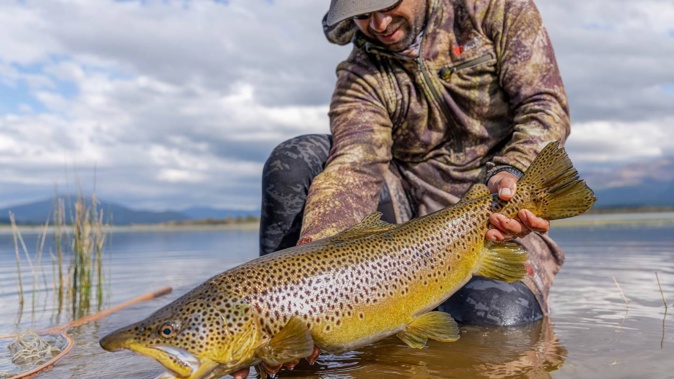
The Department of Conservation is increasing trout licence fees for visitors to one of the finest fishing sites in the world: Taupō and the Tongariro.
Taupō is considered to be a mecca for anglers and draws fly fishers from across the world.
From July 1 overseas visitors will be paying $89 for a week’s fishing - up from $65 last season and an increase of over 36 per cent.
Meanwhile Kiwi trout fishers will pay $49 for a week, an increase of 16 per cent on last season.
DoC’s fishery has been facing difficult economic currents and an international visitor marker that is still recovering.
Operations manager for the Taupō Fishery, Dave Conley said that a price increase was inevitable in the face of increasing operating costs.
“Our licence fees will increase by an average of 10 per cent , which is still well below the Consumer Price Index increases seen over the last six years,” says Conley.
DoC’s fee increase brings the day rate into line with Fish & Game - who charge $23 for a day licence, although the sports fishing body charges a higher rate of $35-a-day for non-residents.
The Department of Conservation is only responsible for trout licences in Taupō, with the rest of the country licensed by Fish & Game NZ.
However Lake Taupō and its rivers are considered to be among the best fishing locations on the planet.
Trout fishing: world famous in Taupō
The ‘picket line fence’ - as locals call the rows of anglers - is a regular sight on Taupō's 30 rivers.
On the busier stretches, fishing enthusiasts stand almost shoulder to shoulder.
Some of the more famous fishers have included Royalty including King Charles and the Queen Mother.
/cloudfront-ap-southeast-2.images.arcpublishing.com/nzme/UYDWKLZXI5FGTAZHPIYU6QU75M.jpg)
The Queen Mother catches a 7lb (3.2kg) trout on the banks of Lake Taupo in 1927. Photo / New Zealand Government Publicity Office, Archives NZ
The cool waters feeding the lake mean that it is a breeding ground for enormous trophy fish.
Since the trout were first introduced in the 1860s Turangi, south of the lake, has drawn anglers from around the world.
Prior to 2020 trout fishing on the lake was seen to generate over $70 million of economic activity each year, although licence numbers were in decline.
The Department of Conservation reported the fishery was worth $29 million annually, possibly making trout the most valuable non-native species under DoC’s protection.
Take your Radio, Podcasts and Music with you









